 Your new post is loading...
 Your new post is loading...
Christopher Cox predicts the significant ways academic libraries will shift in terms of collections, services, spaces and operations as a result of the pandemic. In early March 2020, COVID-19 blindsided academic libraries. With little time to plan, we closed our library facilities at Clemson University to protect the safety of our patrons and employees and moved to online services only and work from home. Thankfully, years of curating digital content, providing multiple opportunities for research interaction and developing robust search interfaces and web presences served us well during this transition.
Virginia Wesleyan University (VWU) is ranked 19th in ethnic diversity among national liberal arts colleges by U.S. News & World Report, a distinction held high by the institution. Diversity is a prominent feature of VWU’s strategic plan, and the institution’s core values emphasize inclusion and social responsibility. Given the diverse constituents on campus, librarians at VWU’s Hofheimer Library saw an opportunity to develop library diversity initiatives in an intentional way. What’s more, diversity forms an important component of the library’s strategic plan, thus emphasizing a commitment inclusive of the community being served.
The first decade of democracy in South Africa has seen intensive policy-making in the higher education sector with a view to transforming the teaching and learning practices to be more consistent with a modern democracy on the African continent. In addition to addressing specific problems and gaps caused by the destructive policies of the past, the government has sought to ensure that the higher education institutions improve the government’s performance with respect to global competitiveness. This paper analyses the key policy trends that are likely to impact on academic libraries’ efforts to extend their information literacy education programmes. The authors discuss the progress made by librarians in establishing partnerships with academics to deliver quality education and so participate in the transformative agenda. These efforts are viewed against the background of global moves towards definitions of graduateness and the establishment of quality assessment management systems for universities. The paper shows how librarians have developed their conceptions of information literacy education and makes the case that they can accelerate the uptake of information literacy education interventions in the curriculum by more pointed leverage of higher education policy initiatives
From virtual reality to state–of–the–art makerspaces, higher education institutions are bringing digital innovation to a traditional academic hub on campus.
Despite the innovations happening on college campuses, university libraries continue to be an academic center for students.
In order to keep up with the continuous marriage of education and technology, universities are implementing new digital solutions in their libraries.
Libraries and funding agencies are finally flexing their muscles against journal paywalls. Authors should follow suit. A PERSON COULD BE FORGIVEN for believing 20 years ago that the internet would soon revolutionize academic publishing. With the emergence of the world wide web, it suddenly became possible for academic publishers to disseminate scholarly work at the click of a button — at a fraction of the cost of printing and mailing hard-copy journals. Recognizing the opportunity, many scholars and librarians began to advocate a new, open access model of academic publishing, in which research articles are made freely available online to anyone who wants them, not just affiliates of colleges or universities. The result would be a true online “public library of science” — which, as it so happens, also became the name of one of the first publishers to embrace the model. As a new librarian in the early 2000s, I believed passionately in the cause of open access and worked hard to bring it about. But almost two decades later, the movement has made only slight gains at the margins, and the traditional subscription-based model remains firmly entrenched in academia. For the university libraries who bear most of the subscription costs, it is as though the internet revolution never happened: Since 1986, research library expenditures have grown at more than four times the rate of inflation, with journal prices showing the greatest price jumps of all.
There is currently a dearth of research on African American college students and their interactions in academic libraries. The purpose of this quantitative study is to investigate whether African American college students view academic libraries as welcoming places and to identify factors that are most influential in their perceptions of welcomeness. Adopting the theoretical lens of “library in the life of the user,” we administered a national online survey questionnaire to 160 black college students attending non-historically black colleges and universities in the United States. The survey data were analyzed by employing correlation coefficient and multiple regression analysis to test our hypotheses. The analytical results showed that participants felt welcomed in academic libraries, and library as place and information needs were significant factors that affected students’ perceptions of welcomeness. Our findings suggest that library patrons are important actors in constituting the atmospheric character of the library.
Academic librarians cannot escape the implications of the knowledge economy and the pervasion of technology which effects everything that we do. Similarly, we must be prepared to teach our students how to cope in this knowledge society and how to develop the necessary information and digital literacy skills to be productive members of society in a digital environment. This article explores the first eighteen months of our experience as digital curriculum librarians in a large project at the University of South Australia (UniSA), UniSA Online. We have taken this opportunity to critically reflect on being embedded librarians within such a strategic and unique project. We examine the key cultural, pedagogical and technological challenges we have faced in delivering resources, support and services to the project team.
King's has set out a compelling vision to ‘make the world a better place’ in its strategy for 2029. The strategic drivers that will enable its delivery mean that Library Services must position itself as a provider of access to world-class resources and learning spaces in order to support research and teaching.
We will need to take a leading role in the emerging digital landscape at King’s, create services to support the full research life-cycle and Open Research as well as empowering students in digital literacy. We must place our Archives & Special Collections at the heart of King’s cultural offering and create opportunities for multi-disciplinary study in new learning environments.
In 2017 SCONUL shared statistical return data with ADBU – the French association of directors and senior staff in university and research libraries. ADBU undertook a European comparative study on key performance indicators in academic libraries between 2013-2016 in thirteen European countries. The study explored: potential library users (staff and students); Library use (gate counts, loans, downloads and information literacy teaching); Library space (meterage, study spaces and computers); Library staff; Electronic resources; and Finance (income and expenditure).
In this chapter included in the book Higher Education in the Era of the Fourth Industrial Revolution, Dempsey and Malpas consider the future of the academic library in the context of a diversifying higher education system. The academic library is not fixed. It is changing as it adapts to the changing research and learning behaviors of its home institution, which are the principal drivers of the library service.
Dempsey and Malpas explore ways in which libraries are responding to the transition from a collections-based model to a more diffuse services-based model. This is in parallel with the evolving influence of the network on student, teacher and researcher practices and with the shift from print to digital. They describe diversification of the higher education system, around poles of research, liberal education and career preparation. Academic libraries similarly will diverge, with different service bundles depending on the type of educational institution they serve.
This means that the model of excellence for libraries also will need to be plural, based on strategic fit to the needs of the institution they serve and not on collection size or gate count.
You probably all know the scene: A library reading hall with endless rows of students working, studying, learning. Alone together. A nice view. Makes me happy every time I cross it. But we should never stop question our services and our users behavior (also when it’s a very positive behavior) and I often ask myself: “Why do they come? Why don’t they sit at home and study?”. Some of them for sure because they are gonna pick up a book or need library help or instruction and don’t get me wrong: I love a library filled with working students and I think we do an awesome job giving them good conditions but still, why do they come just to sit and work? I find the question important because it might be a window to both insights on the library and the people using them.
|
Abstract
This article summarizes trending topics in academic librarianship from the past two years. These highlights provide a starting point or an update, depending on one’s familiarity with the topic. Overarching themes across the profession continue to emphasize the significant amount of change our institutions are driving, managing, and navigating.
One of the most sought after skills in innovation industries is curiosity. The brilliant thing about curiosity is anybody is capable of it. It does not require intelligent genes or an expensive education. The only requirement is a willingness to try something new. Trying new things is how we advance our disciplines, so curiosity is key to any innovative field. Not surprisingly, curiosity often manifests in experimentation because experimentation, at its core, is about trying new things.
Schools have been on a mission to reinvent campus libraries—even though students just want the basics.
Via John Shank
Libraries at small colleges, especially colleges with a nontraditional student population, face an uphill struggle to remain relevant in the life of the institution. Students at colleges like these tend to be adults who are already in the workforce and have many responsibilities and demands on their time outside of school. These students will usually either come to campus for their classes and leave or take online classes and rarely set foot on campus.
Download rates of academic journals have joined citation counts as commonly used indicators of the value of journal subscriptions. While citations reflect worldwide influence, the value of a journal subscription to a single library is more reliably measured by the rate at which it is downloaded by local users. If reported download rates accurately measure local usage, there is a strong case for using them to compare the cost-effectiveness of journal subscriptions. We examine data for nearly 8,000 journals downloaded at the ten universities in the University of California system during a period of six years. We find that controlling for number of articles, publisher, and year of download, the ratio of downloads to citations differs substantially among academic disciplines. After adding academic disciplines to the control variables, there remain substantial “publisher effects”, with some publishers reporting significantly more downloads than would be predicted by the characteristics of their journals. These cross-publisher differences suggest that the currently available download statistics, which are supplied by publishers, are not sufficiently reliable to allow libraries to make subscription decisions based on price and reported downloads, at least without making an adjustment for publisher effects in download reports.
Libraries and learning resources services have embraced digital practice over three decades. Lis Parcell reflects on their pioneering approach and considers how libraries will continue to reinvent themselves
M.A.—$20,000 dollars of student debt, 14 months, one thesis, two internships, $1,500 dollars worth of textbooks, and countless sleepless nights later and I finally earned those two little letters following my name. It wasn’t until three semesters into my degree, after spending $1,000 dollars merely renting my textbooks that I discovered my University’s ebook library. To be clear, I didn’t just stumble upon it either. After learning about open educational resources (OER) at the HEeD Think Tank last spring (now UPCEA’s eDesign Collaborative), I spent hours doing my own personal research on my university’s open access policy and scouring the library website. Eventually, I was able to find all but three of my 11 textbooks for my master’s degree in educational technology freely available on the library website, not to mention plenty of other materials (e.g., case studies and articles I had purchased over the years).
Introduction. Open access to digital research output is increasing, but academic library policies can place restrictions on public access to libraries. This paper reports on a preliminary study to investigate the correlation between academic library access policies and institutional positions of openness to knowledge.
Method. This primarily qualitative study used document and data analysis to examine the content of library access or use policies of twelve academic institutions in eight countries. The outcomes were statistically correlated with institutional open access publication policies and practices.
Analysis. We used an automated search tool together with manual searching to retrieve Web-based library access policies, then categorised and counted the levels and conditions of public access. We compared scores for institutional library access feature with open access features and percentages of open access publications.
Results. Academic library policies may suggest open public access but multi-layered user categories, privileges and fees charged can inhibit such access, with disparities in openness emerging between library policies and institutional open access policies.
Conclusion. As open access publishing options and mandates expand, physical entry and access to print and electronic resources in academic libraries is contracting. This conflicts with global library and information commitments to open access to knowledge.
According to experts, university libraries are changing—with the exception of one important role Universities are seeking ways to innovate and keep up with the changing expectations of students and faculty, and university libraries are no different. Academic libraries are good at adapting as they try to meet students and faculty who learn differently and who have varying expectations for what their university library is. As physical space, available funding, and student needs change, university libraries will have to adapt to meet different needs and campus roles.
How often have you walked passed your school library and never given a second thought to the person who works in that room? Or you notice that there are students in there reading books and working on the computers and think ‘that’s nice’. You may even encourage your students to go and choose a book occasionally and think that you are doing your bit. What if someone suddenly said that your school library was closing and the room was going to become a gym. Would you really be upset by the loss of such a resources or would you secretly not be all that bothered? Do you ever think about the person who is working in there who is desperate to help you and your students? Do you ever wonder why that person is constantly trying to stop you in the corridor when you are busy? Do you understand the opportunities you are missing?
Among the more fascinating library revitalization projects we have seen recently, one that stands out is Payson Library at Pepperdine University. As we took a closer look, we realized that much of the thinking that informs the Payson Library renovation is replicable and scalable for other institutions, even institutions with quite small library facilities.
I find it a bit ironic that I’m talking in a session called ‘Learning Centers’ when I, well hate is a strong word, but I really have some big issues about the term ‘learning center’ used in library context. To me libraries are very much about learning and about people meeting, collaboration and talking. The library is also about collections for sure but a collection in itself is not the goal, the goal is to support learning, education and research and libraries are great at that so let’s just call it a library.
|



 Your new post is loading...
Your new post is loading...



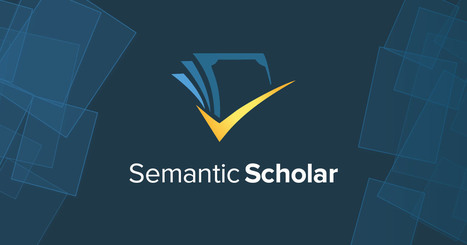




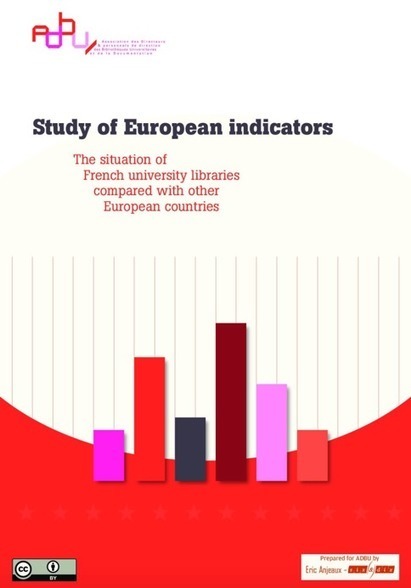
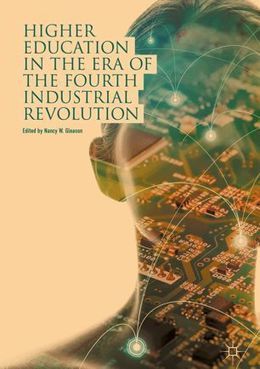


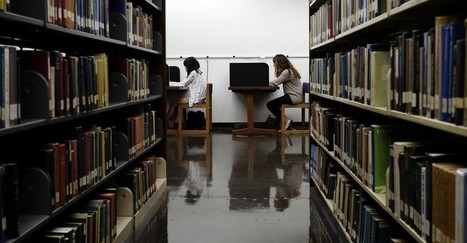


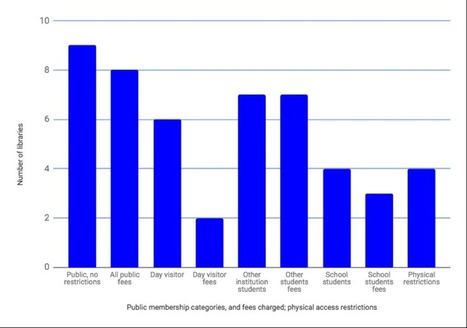

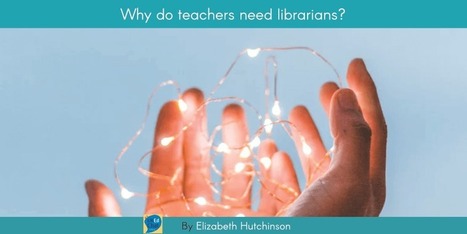

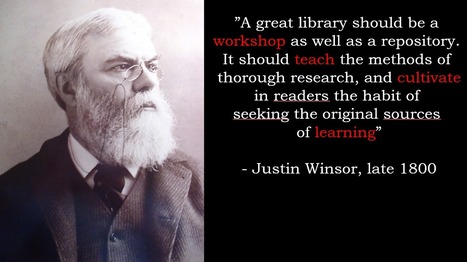





A great overivew of current state of play in academic libraries and the LIS sector, with a call to start implementing changes. If not now - when?